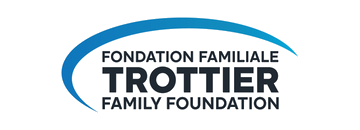Date: March 9, 2022
Time: 11:45am - 12:30pm EST
Cost: Free
Language: English
Location: Virtual
View a recording of the event here.
In November 2021, Smart Prosperity Institute, in partnership with Corporate Knights and The Natural Step Canada , published the Canadian Pensions Dashboard for Responsible Investing, a navigational tool to increase ambition for a sustainable, inclusive future.
The report accompanying the dashboard found that while there have been positive developments towards sustainability in the pension sector, there are still challenges.
Highlights from the report:
- The 3 largest pension funds in Canada, with AUM of more than $1 trillion, have committed to net-zero emissions
- Canada’s 12 largest pension fund managers now have more than $160 billion invested in self-defined low-carbon solutions, representing more than 7% of total assets ($2 trillion)
On March 9, a panel of experts convened to reflect on the current state of Canadian pensions and discuss the path to making them greener, faster. In particular, they focused on answering three key questions:
- Why should climate change matter to pension funds?
- What is green investment and what isn’t?
- How much is enough with green investment targets?
Moderator
Toby Heaps, CEO, Corporate Knights
Welcome Remarks
Eric St. Pierre, Executive Director, Trottier Family Foundation
Summary Findings
Derek Eaton, Director, Public Policy Research and Outreach, Smart Prosperity Institute
Expert Panel
Keith Ambachtsheer, President, KPI Advisory Services
Alison Loat, Managing Director, Sustainable Investing And Innovation, OPTrust
Ellen Quigley, Senior Research Associate, Centre For The Study Of Existential Risk, University Of Cambridge
Rosalie Vendette, Sustainable Finance Expert, DecodESG
Click here to view a recording of the event.
-----------------------------------------------------------------------------------------------
This event was inspired by conversations related to the report, Canadian Pensions Dashboard for Sustainable Investing: A navigational tool to increase ambition for a sustainable, inclusive future, published by Smart Prosperity Institute in November 2021.



